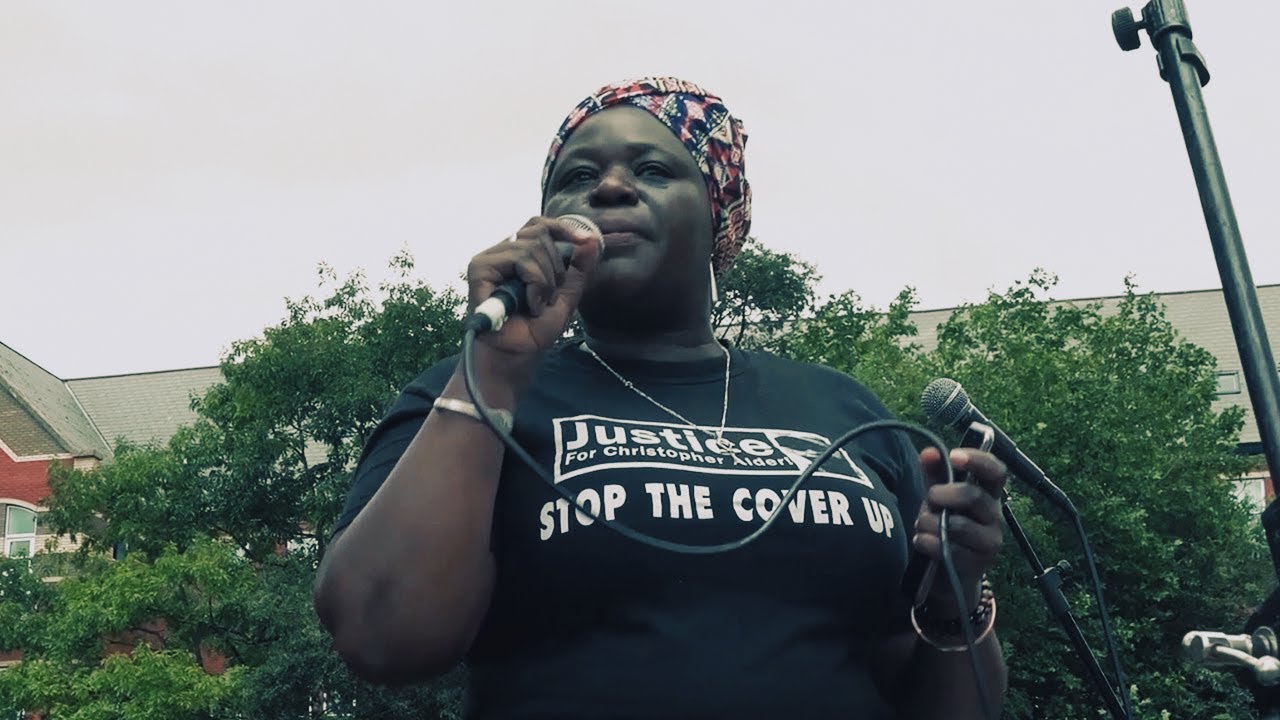Truth be told, when I started researching this article, I had to double-check the stats. It sounds almost implausible: that out of the 1.9 million people classified as ‘Black’ currently living in the UK, over 1.1 million happen to live in London. That leaves 800,000 or so Black people spread out across the rest of the country. To put that into perspective, Piers Morgan has more followers on Instagram than there are Black people in the entire British Isles, and he has over nine times more twitter followers than there are Black people outside of London.
The first conclusion is the most obvious: there are relatively few Black people in the UK, and the Black British experience is tied closely to the capital city. I’m no exception. I was born in London back in the early 80s, the child immigrants from Ghana, a former British colony. I joined a single digit percentage of Black people living in Britain, and London was my home.
Like a lot of Londoners, I saw my city as the centre of the universe. It always felt like the country’s ideological hub, home to every seat of power, be they political, cultural or economic. As a so-called ethnic minority, I never stopped to consider that I lived in the highest density of people who shared my ethnic background, or skin colour at least. I took it for granted.
And then I moved out. Two years ago, to be exact, when I upped sticks with my family to East Yorkshire. ‘Up North’, people call it.
Since leaving London, my eyes have been opened to the realities of living as a minority in Britain. Stepping out and knowing that you might be the only non-white person you see that day (if you happen to catch a reflection); seeing glances turn into lingering stares as your ‘otherness’ gets noticed; working in environments where you are the only Black member of staff – that sort of thing. When you’re out on your own, the bubble can soon start to feel claustrophobic.
The sense of community we seek on a social level is the same as that which we crave when it comes to identity. I didn’t notice it happening it at the time, but moving out of London stirred an instinct in me to reach out to other people with a shared, lived experience.
One of these people was Chiedu Oraka, a rapper from Hull credited with pioneering the city’s grime scene. He also calls himself ‘The Black Yorkshireman’. As a nickname, it reveals the perceived discrepancy between Blackness and Yorkshireness (you’d look twice if someone ever called themselves ‘The Black Londoner’, I’m sure). I’d actually been aware of Chiedu years before I ever met him, having written about him in my 2017 book about grime, Hold Tight. Suddenly, I found myself in a community of Black people in Yorkshire, of which Chiedu is also part.
Chiedu’s story is different to mine. His most recent song, ‘The Trials and Tribulations of C.E.O.’, offers an autobiographical glimpse into what it’s been like growing up Black in the working class community of North Hull, including racism, near-death experiences and unwanted attention from the law. As Chiedu calmly explains: just because he grew up in Yorkshire, it doesn’t mean everything’s been ‘gravy’.
Which got me thinking. Growing up in London, Black Britain’s cultural centre, how much was I ever even invited to think about the experiences of Black people elsewhere in the UK? And how far did London’s position as the biggest home to Black Britons blinker me to the realities I’ve only started to consider?
My racial identity was thrown into sharp relief when I left London, but meeting Chiedu is proof that I was never as alone as I thought I might be. As stated, Black people definitely exist beyond the M25 – we’ve just got an enforced case of social distancing to deal with. The good news is that geographical barriers are no longer insurmountable. The internet age has made sure of that, offering connectivity and community that can easily transcend physical distance. A year ago, if you’d said that people would be happy to meet, work and commune through broadband wireless and laptop screens, many of us would have been incredulous. It’s fair to say that Covid 19 has revealed how isolation can make you crave contact and seek support, especially during times of crisis, when things go wrong.
Last year, the worst extent of racial discrimination reached a global audience following the killing of George Floyd, sparking an international movement for change under Black Lives Matter. Suddenly, we were all witness to the ongoing crisis of racism and police brutality that the USA continues to struggle with.
The unhelpful assumption is that what applies to the US applies equally and directly to the UK, as if the experiences of black people is somehow universal, without nuance or distinction. Yes, there are broad ideological brushstrokes at play, but different countries have very different legacies of racism. In Britain, for instance, enslaved Africans toiled far away in colonised islands, earning profits for slaveowners and business owners out of sight and out of mind. Very different to the plantation-era slavery in which enslaved African-Americans lived under the watch of their ‘masters’. If British people take Black American narratives as representative of all Black narratives, there is a risk of neglecting the details of our own specific injustices – and the histories they are connected to.
Many of the UK’s racial injustices are historically centred around London. The list of names is long, victims of deep, societal racism manifested in trauma and tragedy. We live in a country continues to be stained by a legacy of institutional racism, discrimination and bias every bit as shocking as what has happened in the US.
It wasn’t until I moved to Yorkshire that I became aware of one of the most shocking examples of racist discrimination in British history. It’s the case of Christopher Alder, a former British army paratrooper from Hull, who in 1998 died on the floor of a police station after being arrested and detained. He lay bleeding and unconscious for eleven minutes, while police officers calmly discussed the events that led to his arrest. One officer accused him of ‘faking’ his injuries and putting on ‘an act’, while he lay dying. Christopher Alder was Black.
His sister, Janet Alder, has spent over twenty years campaigning for justice and raising awareness, becoming an advocate of and inspiration for a Black community in need of positive change. It was only 2011 that one of the most appalling scandals in the story was revealed – that the body buried by Christopher Alder’s family was that of another person entirely; an unbelievably shocking mix-up that once more speaks to the disrespect and discrimination facing Black communities in the UK.
Despite the growing profile of his tragic death, Alder’s is still not the most prominent name in the public consciousness relating to matters of racial injustice in the UK. I wonder what it is about the internal politics of this country that means that the case of Christopher Alder is not a more overtly prominent national scandal. Why it is that we’re more likely to hear about American cases of injustice and brutality ahead of examples from our own shores?
Hopefully, perspectives are widening. In 2020 it was announced that Typical, a stage play about Christopher Alder’s death, is to be adapted into a film. More recently, a documentary series entitled Black Kings Upon Hull featured an interview between Janet Alder and Chiedu Oraka, during which he praised her as not only a freedom fighter and activist, but also the ‘strongest and bravest person’ he’s ever met.
As Black Lives Matter continues to embed itself into the zeitgeist, it’s surely long overdue for every victim, hero and heroine to be unearthed from across the Black British diaspora. I feel pained about not having been aware of Janet Alder’s activism until so recently in my own life. I feel like I’ve finally been exposed to an injustice that took place hundreds of miles away from my bubble, but one that affects me deeply, in much the same way, perhaps, that the death of George Floyd struck an emotional chord with so many millions who have never stepped foot in Minneapolis. As a movement, Black Lives Matter gained momentum when it broke free of locality, unfurling into the wider consciousness. Once the stories are revealed, our empathies and passions are stirred. Trayvon Martin, George Floyd and Breonna Taylor. Stephen Lawrence, Sean Rigg and Joy Gardner. We say their names to remember their pain. And we can’t do that until we know who they are.
That’s the big conclusion: we need proximity to injustice in order to be moved by it, and we need to pop the bubbles that might stop us from reaching out. Stories like Christopher Alder’s aren’t simply shocking examples of social injustice. They are essential pieces of our shared narrative. Without them, the urgency required to light fires and ignite action can find itself dampened, or delayed. If nothing else, these stories prove that marginalised voices need to be heard and marginalised experiences need to be seen, for the collective uplift of not only minority groups, but the dominant majority as well. As a black ex-Londoner, moving outside the UK’s black British centre has proven to be as empowering as it is insightful: a reminder that the connections we need are sometimes much closer than we think.
Jeffrey Boakye is the author of Musical Truth: A Musical History of Black Britain in 28 Songs, publishing in June 2021 with Faber Children’s




